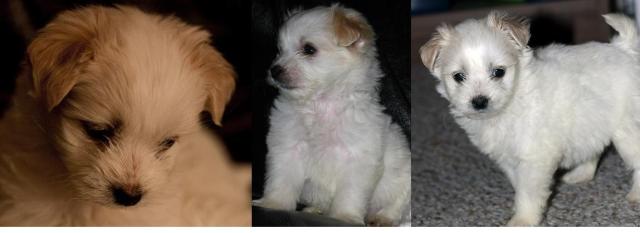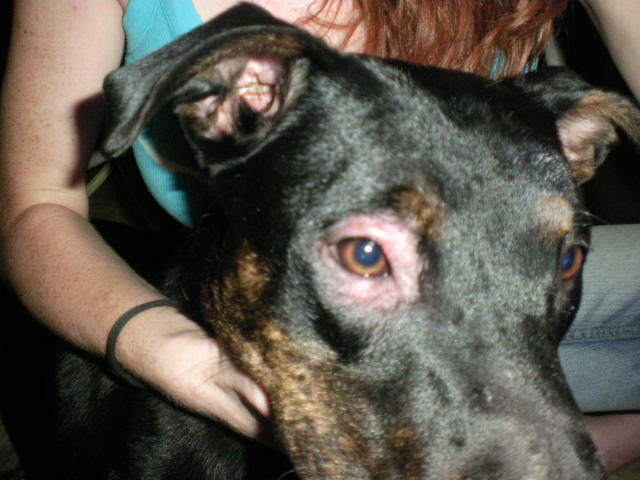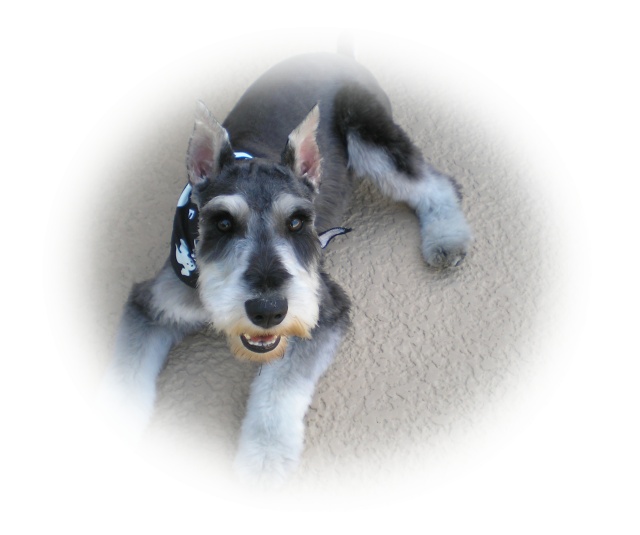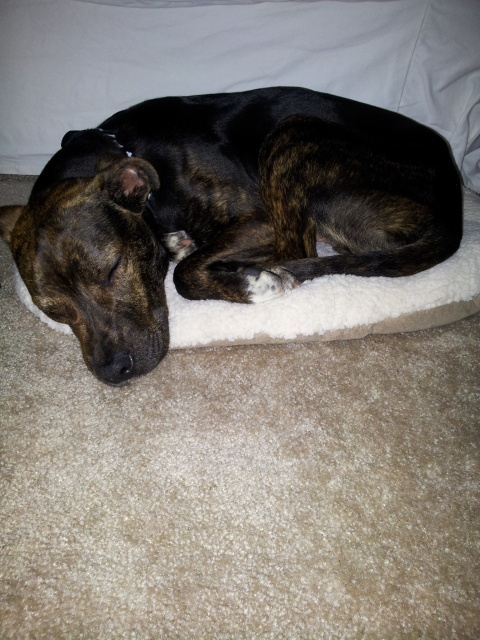QuestionI have a one year old male german shepherd mix. He has extremely dry skin
and was wondering what I can do for it? He has not been fixed yet. He
also has a very strong "doggy" smell about him, could that be related to
his dry skin, or his not being fixed, or a change in the dog food he eats?
AnswerHi Shawna,
Dry skin can be related to a dog's diet, or it can be a sign of a more serious underlying condition.
Bathing, for example, may dry out your dog's skin. If you give your dog frequent baths, that can be the problem. Dog's rarely need to have baths.
If your dog is fed a poor quality diet which is too low in fatty acids or other nutrients, he may need a change of food, or take a supplement to ensure he gets sufficient fatty acid to keep his skin healthy.
In an animal's body (and ours) the liver and other tissues can make many of the fatty acids that are required for the body's chemical factory to operate. In dogs, though, there is one that they cannot make... Linoleic Acid (also called Omega 6 Fatty Acid). It's called an ESSENTIAL FATTY ACID because the dog needs to consume it from dietary sources.
With adequate Omega 6 in the dog's diet the other fatty acids needed for metabolism can be created internally.
The simplest way to assess the possibility a deficiency is to take a very close look at your dog's skin. If the skin is dry and flaky and the coat actually feels greasy and dull and has a coarse texture, there's an excellent chance your dog is not getting high quality fats in the diet.
Research has found that combining fat sources in a dog's diet to a ratio of 5-10 omega-6 fatty acids to 1 omega-3 fatty acid results in excellent skin and coat health.
You can read more about Fatty acids as supplement here:
http://www.gooddogmagazine.com/fattyacids.htm
Some of the most commonly used fatty acid supplements include Derm Caps, similar products from Foster & Smith, and other combination products, plus flax seed, fish, borage, primrose, sunflower, and olive oils. You should talk to your vet and get the correct dosage of fatty acid supplements for your particular dog.
Other skin irritations may cause itching and scratching which also lead to increased skin cell production and the characteristic flaking. These problems might be fleas, mites, or allergies.
Sometimes what looks like dry skin, is actually a symptom of a much more complex problem. Endocrine diseases particularly Cushing's disease, for example, can result in hyperkeratosis or "dry skin".
Regarding your dog's "doggy smell", has he always had a strong odor, or has this odor developed recently? Just like in people, odor is something that very much depends on the individual. If there is a problem, it has to be tackled from the "inside". This problem might also be caused from his current diet.
How are your dog's ears? Are they brown and gooky? An ear infection can make the whole dog smell bad.
If this were my dog, I'd try to adjust the dog's diet with the use of the Omega fatty acids, and by changing to a "Super Premium" dog food. If you decide to switch dog foods, do so very slowly- a little at a time. The switch over process should take 4-5 days to complete. If you change a dog's diet too quickly he may get diarrhea.
This web page will help you select a good quality dog food. Go to:
http://www.allaboutdogsinc.com/food.htm
I'd give the new diet and supplements a chance to work, and if you haven't seen an improvement in a month to a month and a half, then perhaps your dog needs to be evaluated by your veterinarian.
Lastly, your dog will benefit from being neutered in many ways, including:
improved health (About 60% of older unneutered dogs will suffer with genital problems!), it will eliminat marking of territory and the desire to roam and oftentimes stop aggressive behaviors.
Best of luck,
Patti

 8wk old pup biting
Question
pebbles
hi i wonder if u can help me my
8wk old pup biting
Question
pebbles
hi i wonder if u can help me my
 maltese with brown ears
Question
maltese
we bought a dog and owner said its pur
maltese with brown ears
Question
maltese
we bought a dog and owner said its pur
 7 month old blue healer mix (Cloe)
Question
cloes right eye
Cloe was having really bad eye
7 month old blue healer mix (Cloe)
Question
cloes right eye
Cloe was having really bad eye
 mini-schnauzer limping not able to put full weight on leg
Question
Willy
A couple of hours ago, I walked my 14mon
mini-schnauzer limping not able to put full weight on leg
Question
Willy
A couple of hours ago, I walked my 14mon
 8 month old rescue has crate-phobia
Question
His name is Pepper
Please help. We adop
8 month old rescue has crate-phobia
Question
His name is Pepper
Please help. We adop